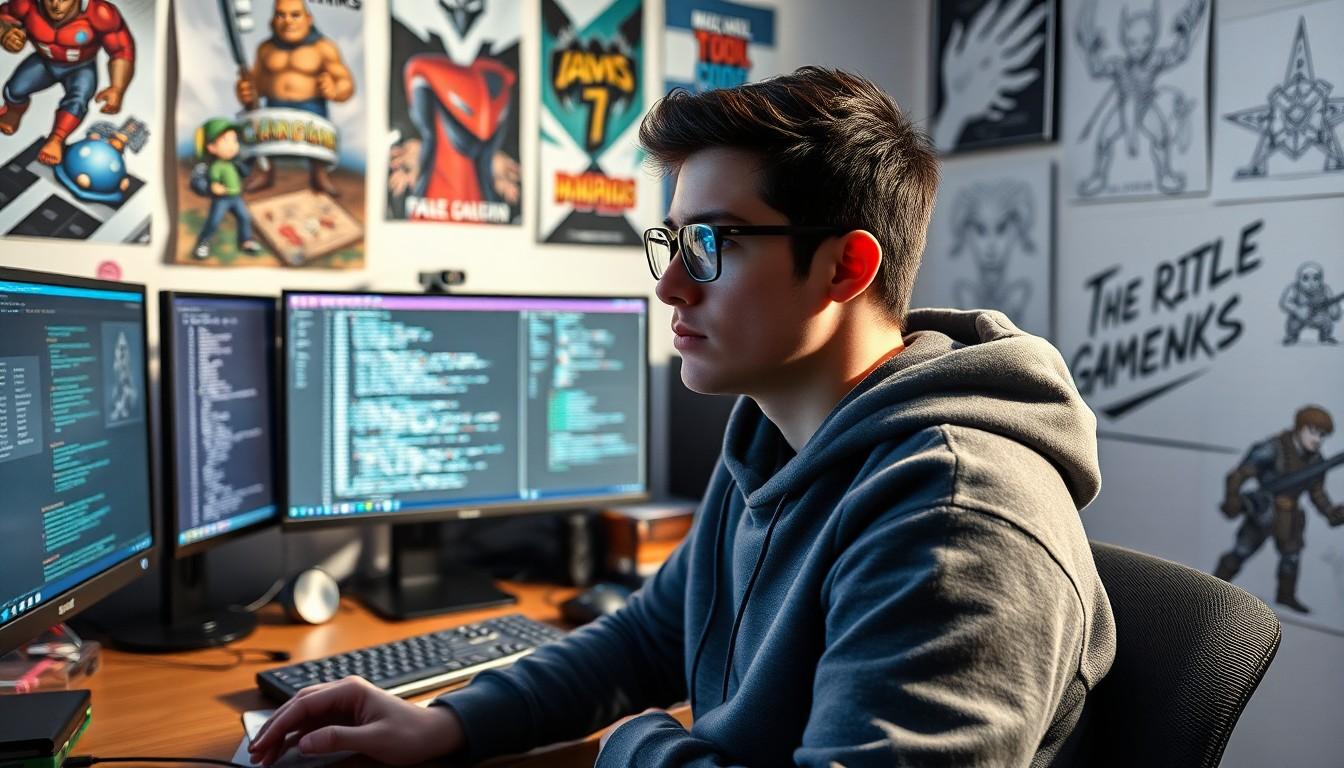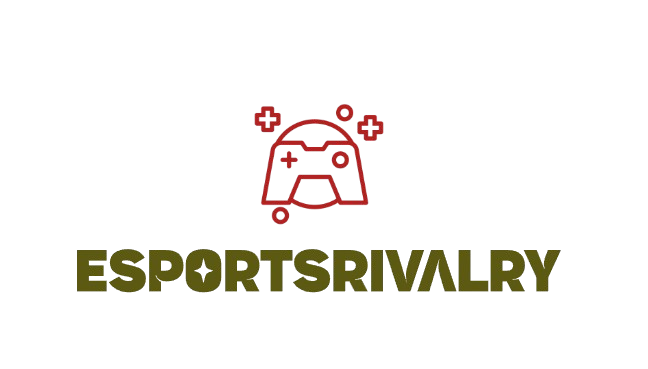
How to Start Game Development: Your Ultimate Guide to Creating Amazing Games
Diving into game development can feel like stepping into a pixelated universe where the possibilities are endless. Whether it’s crafting an epic fantasy world or designing a cheeky puzzle game, the thrill of bringing ideas to life is irresistible. But where does one even begin? Fear not, aspiring game developer! With a little guidance and a sprinkle of creativity, anyone can embark on this exciting journey.
How to Start Game Development
Game development encompasses a wide range of skills and disciplines focused on creating engaging experiences. Aspiring developers can explore various paths, each offering unique challenges.
Overview of Game Development
Game development involves multiple stages including concept creation, design, programming, and testing. Each phase plays a vital role in transforming ideas into playable games. Collaborating with artists, designers, and programmers enhances the development process, ensuring a cohesive final product. Knowledge of game engines such as Unity or Unreal Engine is essential. These platforms provide the tools necessary to bring concepts to life, allowing for experimentation with different mechanics and styles.
Different Types of Games
Games can be categorized into several types, serving diverse audiences and preferences. Action games emphasize fast-paced gameplay and reflexes, while strategy games focus on planning and resource management. Role-playing games allow players to immerse themselves in rich narratives and character development. Puzzle games challenge players with problem-solving tasks. Each category presents unique opportunities for creativity and innovation, encouraging developers to experiment with mechanics and storytelling to captivate their audience.
Essential Skills for Game Development

Aspiring game developers should focus on several essential skills to thrive in the industry. These skills enhance creativity and technical capability, paving the way for successful projects.
Programming Languages to Learn
Learning programming languages like C#, C++, and Python is vital for game developers. These languages offer versatility across different game engines and platforms. C# serves as the primary language for Unity, while C++ is fundamental for Unreal Engine. Python is useful for scripting and prototyping, providing ease of use in development. Familiarity with these languages increases job prospects and allows developers to write efficient code. Additionally, understanding game-specific frameworks and tools can streamline development processes.
Design and Art Skills
Strong design and art skills significantly enhance a game developer’s work. Familiarity with game design principles helps in crafting engaging gameplay experiences. Knowledge of visual design includes basics in color theory and composition, which enhance the overall aesthetic. Working with graphic design software like Adobe Photoshop or Blender allows developers to create compelling game assets. Understanding user interface design improves player interactions through intuitive layouts. Combining technical programming knowledge with artistic capabilities leads to more cohesive and appealing games.
Choosing the Right Tools
Choosing the right tools significantly impacts the success of a game development project. Selecting suitable software and hardware lays a solid foundation for creativity and technical execution.
Game Engines and Software
Game engines play an essential role in development. Unity stands out for its user-friendly interface and strong community support, making it ideal for beginners. Unreal Engine excels in producing high-fidelity graphics, suited for developers aiming for realism. For 2D games, tools like Godot and GameMaker Studio provide streamlined workflows. Each engine offers specific features, so prioritizing personal needs and project goals helps in making an informed choice. Additionally, software for art and design, such as Blender or Adobe Photoshop, complements game engines by enabling asset creation and visual enhancements.
Hardware Requirements
Hardware requirements depend on the complexity of the game being developed. A powerful computer with a multi-core processor and at least 16 GB of RAM is recommended for efficient performance. Graphics cards, such as NVIDIA GeForce or AMD Radeon, significantly impact rendering capabilities. Laptops may suffice for simpler projects, while high-end desktops are better for advanced game development tasks. Although not mandatory, peripherals like a graphics tablet boost creativity and precision for art creation. Prioritizing hardware that matches the intended development goals enhances workflow and reduces frustration.
Planning Your First Game
Planning a game involves essential steps like concept development and creating documentation. Successful planning sets the foundation for a smooth development process.
Concept Development
Concept development is the initial stage in game creation. Developers brainstorm unique ideas through themes, mechanics, and narratives. Choosing a core gameplay mechanic helps establish project goals. Incorporating market research provides insight into popular genres and trends. By evaluating competitors, developers can identify successful elements and potential gaps in the market. Prioritizing originality ensures a memorable player experience. Collaborating with peers during brainstorming sessions enriches the creative process and encourages diverse perspectives.
Creating a Game Design Document
A game design document (GDD) serves as a blueprint for the project. It outlines the game’s vision, core mechanics, and art style. Structuring the GDD into sections like gameplay, story, and art requirements enhances clarity. Including a target audience description helps align the game’s development with player expectations. Art and technical specifications should also be addressed to guide visual and programming efforts. Additionally, this document serves as a reference throughout the development process, ensuring consistency in design choices. Sharing the GDD with collaborators facilitates effective communication and keeps the project on track.
Common Challenges in Game Development
Game development presents several challenges that can impact aspiring developers. Understanding these hurdles helps navigate the complexities of creating engaging games.
Time Management
Effective time management remains vital in game development. Developers often juggle multiple tasks, including coding, asset creation, and testing. Setting realistic deadlines promotes consistent progress. Prioritizing tasks based on project milestones also enhances productivity. Utilizing tools like Gantt charts or task management software aids in tracking schedules. Regular progress reviews can identify bottlenecks early on, ensuring timely adjustments. Balancing creativity with efficiency ultimately leads to successful project completion.
Handling Feedback
Handling feedback effectively contributes to game quality. Developers should expect input from playtesters and collaborators throughout the process. Collecting constructive criticism helps refine mechanics and improve gameplay experiences. Engaging with feedback openly encourages collaboration and fosters innovation. Creating a structured feedback loop can streamline this process. Documenting suggestions allows for better assessment and integration of useful insights. Prioritizing actionable feedback ensures that the development aligns with player expectations.
Starting a journey in game development is an exciting venture filled with endless possibilities. By embracing creativity and honing essential skills, aspiring developers can carve out their niche in this dynamic field.
It’s important to remember that successful game development relies on effective planning and collaboration. Utilizing the right tools and understanding user feedback can significantly enhance the final product.
With dedication and passion, anyone can transform their ideas into engaging gaming experiences. The world of game development is waiting for the next wave of innovative creators ready to make their mark.
